Learn English
Sports Build Discipline Teamwork and Boost English Skills
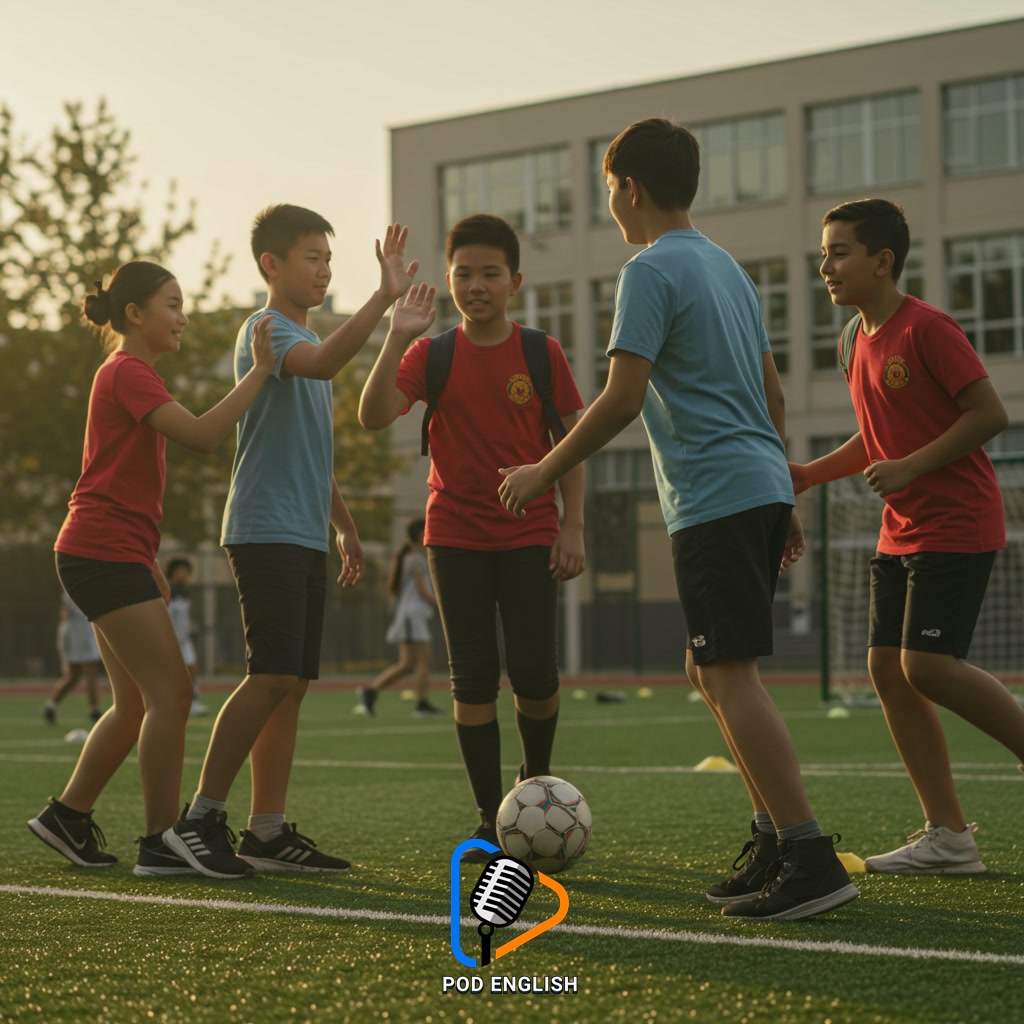
Engaging in sports provides valuable benefits, including the development of discipline and the cultivation of teamwork skills. Beyond these character-building aspects, participating in sports serves as a practical and dynamic method for learning English. The interactive nature of sports offers ample opportunities for improving communication and vocabulary in a real-world context. This synergy between physical activity and social interaction effectively enhances language acquisition alongside personal growth.
Table of Contents
- Section 1: Introduction: The Multifaceted Benefits of Sports
- Section 2: Building Discipline Through Athletic Endeavors
- Section 3: Fostering Collaboration and Teamwork on the Field
- Section 4: The Unexpected Link: How Sports Enhance English Skills
- Section 5: Practical Ways Sports Facilitate English Learning
- Section 6: Conclusion: The Holistic Impact of Sports on Personal Growth and Language Acquisition
Section 1: Introduction: The Multifaceted Benefits of Sports
Engaging in sports offers far more than just physical fitness; it serves as a powerful vehicle for personal development, cultivating essential life skills that extend well beyond the playing field. This introduction explores the diverse advantages of participating in sports, highlighting not only its well-known contributions to discipline and teamwork but also its often-underestimated role as a dynamic tool for enhancing English language proficiency. By examining these multifaceted benefits, we begin to understand the profound impact sports can have on an individual’s growth and learning journey, setting the stage for a deeper dive into how these benefits are realized.
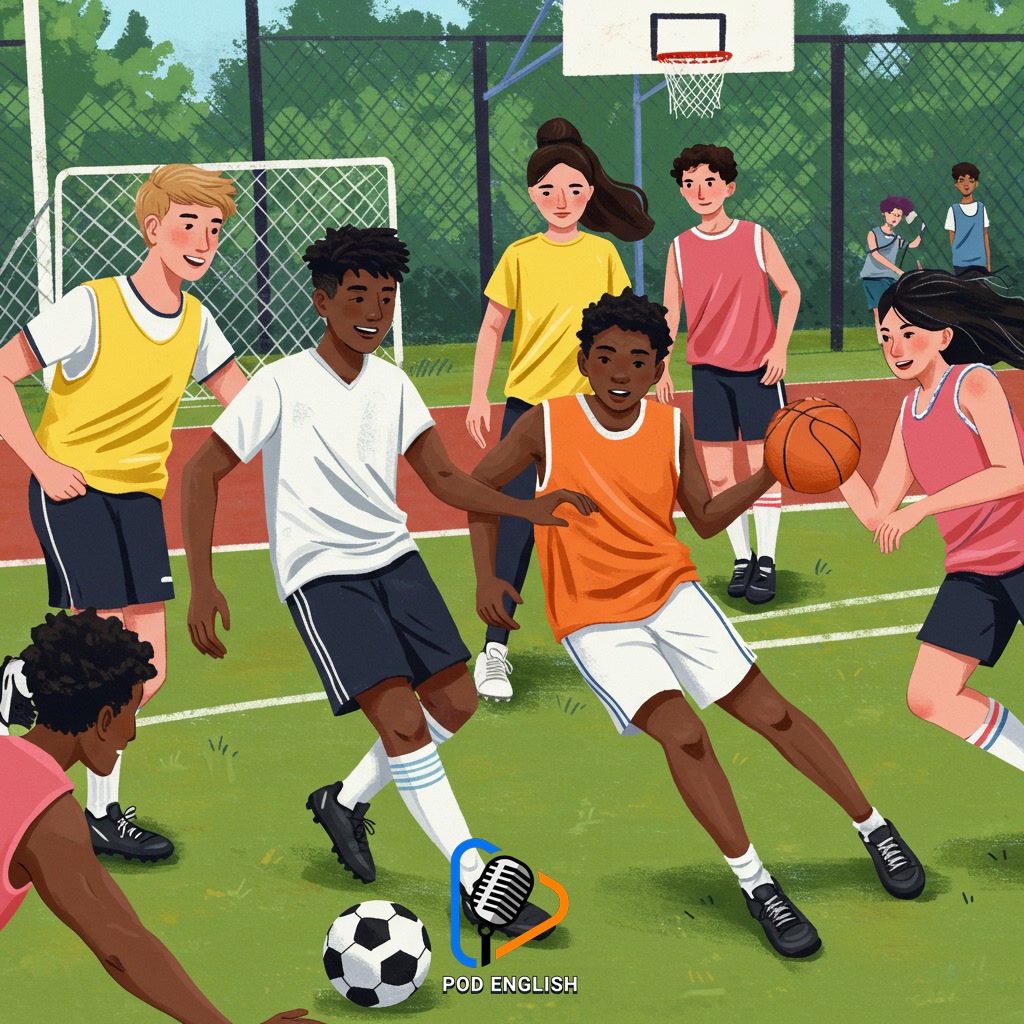
Section 2: Building Discipline Through Athletic Endeavors
Following the idea that sports build essential life skills, one of the most significant is discipline. Regular participation requires commitment to training schedules, even when tired or facing difficulties. Athletes learn to follow rules, listen to coaches, and maintain focus during practice and competition. This consistent effort and adherence to structure cultivate self-control and the ability to persevere through challenges, translating valuable lessons about dedication and responsibility from the sports field into other areas of life. This disciplined approach is a fundamental building block for success and personal growth.

Section 3: Fostering Collaboration and Teamwork on the Field
Following the idea that sports build essential life skills, beyond individual discipline, lies the crucial development of teamwork and collaboration. When playing sports, individuals learn to work together towards a common goal. This involves communicating effectively with teammates, listening to instructions from coaches, and understanding their role within the group. Sharing successes and challenges on the field teaches players how to support each other, build trust, and resolve disagreements constructively. This constant interaction and need for clear communication provides a dynamic environment for practicing and improving English language skills in a practical, engaging way, making the learning process enjoyable and relevant.
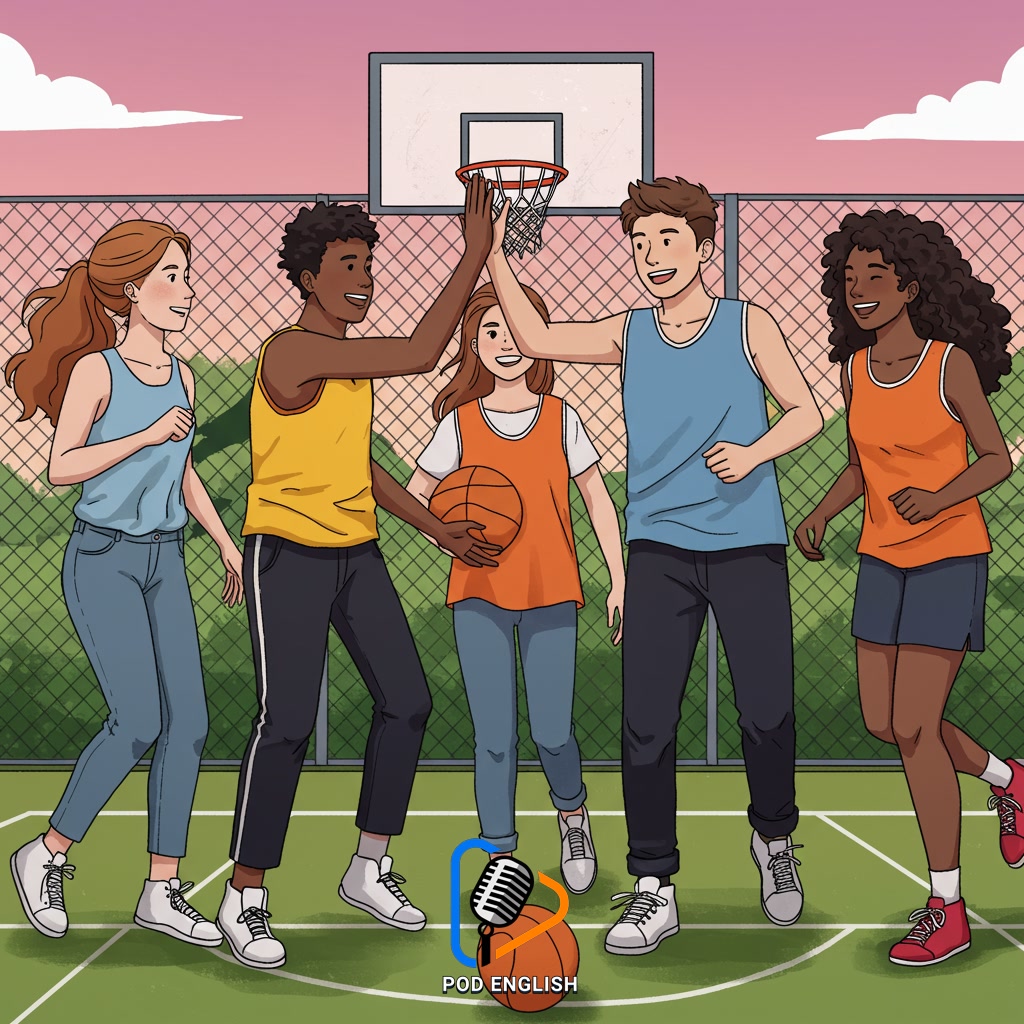
Section 4: The Unexpected Link: How Sports Enhance English Skills
Building on the concept of teamwork, sports provide a dynamic environment for language practice, particularly English. When players interact on the field or court, they naturally use language to coordinate strategies, give instructions, encourage teammates, and understand coaching. This real-time communication offers practical exposure to vocabulary, phrases, and listening comprehension in an engaging, low-pressure setting. Understanding rules, discussing game plans, and even cheering involve active language use. This practical application makes learning English feel less like a classroom exercise and more like a natural part of an enjoyable activity, significantly boosting fluency and confidence through active participation and immediate feedback.
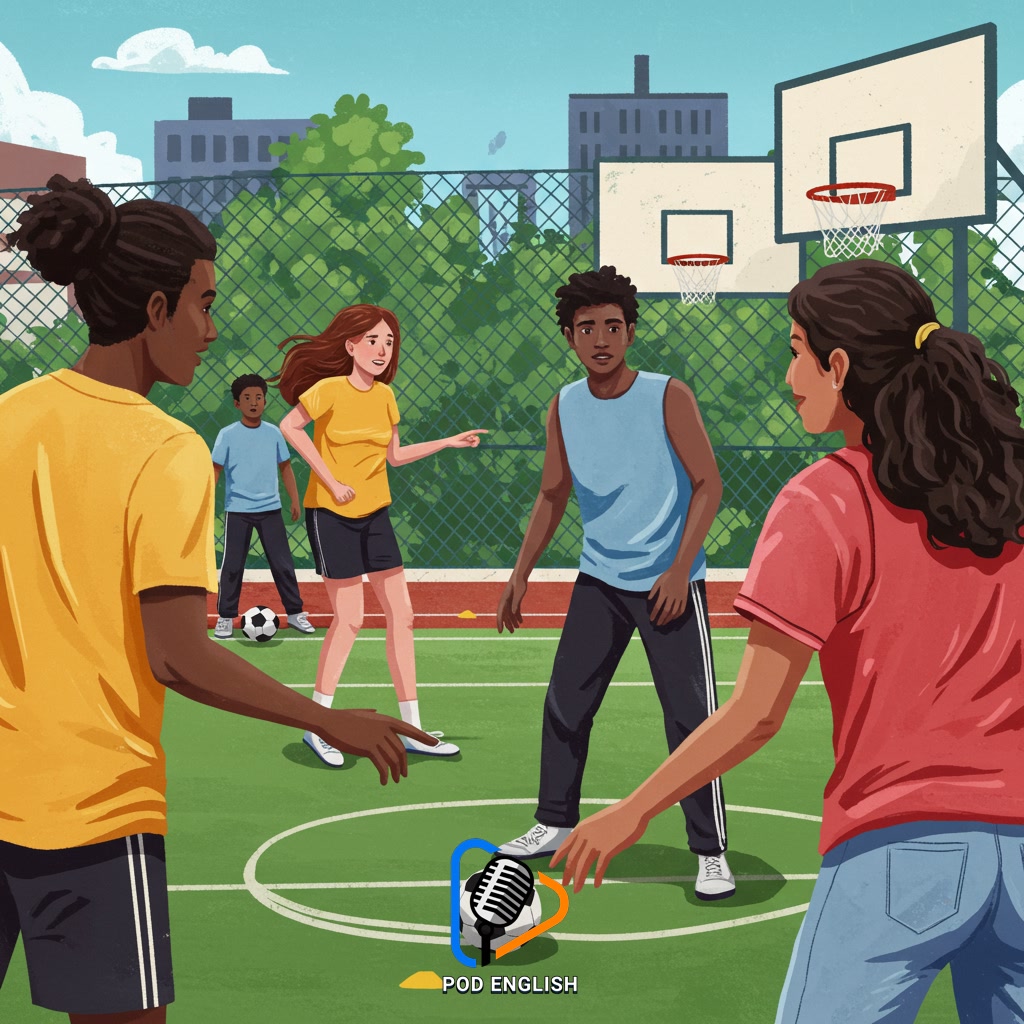
Section 5: Practical Ways Sports Facilitate English Learning
Building on the concept of teamwork, sports provide a dynamic environment for language practice, particularly English. When players interact on the field or court, they naturally use language to coordinate actions, give instructions, and encourage teammates. This practical application moves beyond textbook exercises, requiring real-time listening and speaking skills. Understanding rules, discussing strategies during breaks, and even casual conversation before and after practice offer authentic opportunities to expand vocabulary related to sports and everyday life. The need to communicate effectively to play the game successfully provides strong motivation for learners to actively use and improve their English abilities in a fun, engaging context.
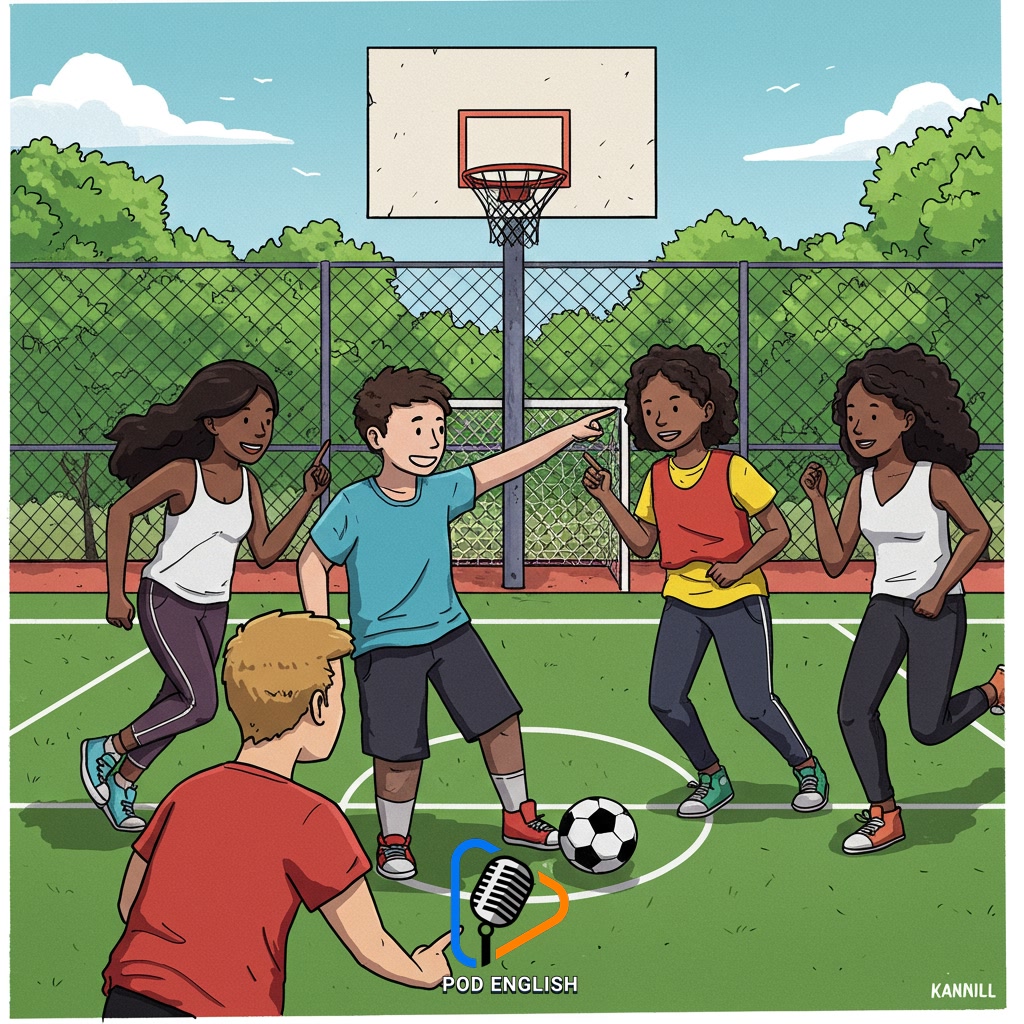
Section 6: Conclusion: The Holistic Impact of Sports on Personal Growth and Language Acquisition
In conclusion, participating in sports offers a powerful and integrated approach to personal development and language acquisition. Beyond building physical fitness, sports are invaluable for instilling discipline through consistent practice and adherence to rules. As explored previously, they are a prime environment for cultivating teamwork, requiring communication and collaboration towards shared goals. Crucially, this dynamic, interactive setting provides authentic opportunities for practicing and improving English language skills in real-time conversations, strategy discussions, and social interactions. Therefore, sports provide a unique synergy where physical activity, character development, and practical language learning converge, contributing significantly to a student’s holistic growth and educational journey.














